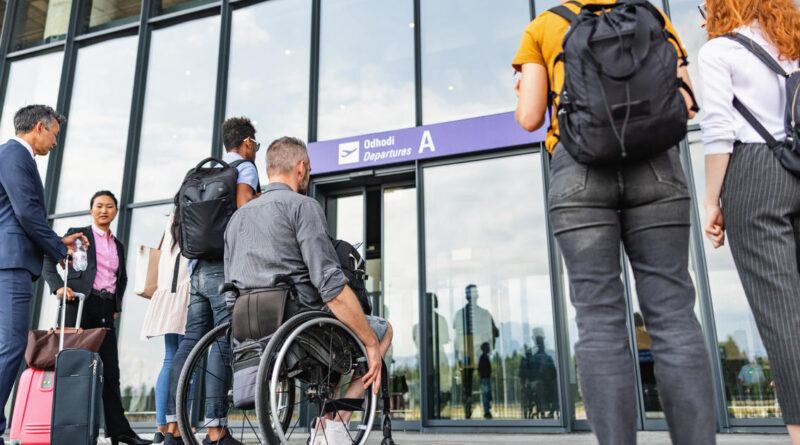Frontier CEO claims passengers are abusing wheelchair services to skip lines
Frontier Airlines is taking a stand against passengers whom it claims are feigning disability to request wheelchair services and skip ahead of other customers in airport security and aircraft boarding lines.
The airline’s CEO, Barry Biffle, addressed the topic at an industry luncheon Thursday. “There is massive, rampant abuse of special services. There are people using wheelchair assistance who don’t need it at all,” Biffle said at the Wings Club Thursday, CNBC reported.
The CEO made his remarks about airport cheats ahead of Memorial Day Weekend, which is expected to be one of the busiest travel weekends in years. The Transportation Security Administration (TSA) said it expects to screen more than 18 million people over the holiday weekend.
Throngs of passengers waiting in long airport security lines as well as to board flights are exactly the kinds of situations people who don’t require wheelchairs but request them anyway are looking to bypass, according to Biffle and the airline.
Biffle said he picked up on the ruse when he noticed 20 or so passengers had boarded a flight using wheelchairs, but only three required assistance upon its arrival, according to the report. “We are healing so many people,” he joked at the luncheon, according to CNBC.
The alleged abuse of wheelchair services can be costly for airlines and create delays for other passengers who aren’t cutting queues.
“We believe there is widespread abuse among passengers using wheelchair services to move to the front of security lines and obtain priority boarding on flights, and the TSA and airlines are in a difficult position when it comes to managing the issue,” Frontier said in a statement to CBS MoneyWatch Friday.
Disabled passengers’ rights
Airlines are required by the 1986 Air Carrier Access Act, which prevents discrimination against people with disabilities in air travel, to provide wheelchairs for passengers who need them. Under the U.S. Department of Transportation’s Airline Passengers with Disabilities Bill of Rights, a passenger with a disability is defined as anyone “with a physical or mental impairment that permanently or temporarily impacts a major life activity such as walking, hearing or breathing.”
But there are no penalties to dissuade passengers from abusing the services, Frontier said.
“A wheelchair registration or verification system is in order, along with legislation to address the issue and impose penalties for those who abuse the system,” the airline said.
To be sure, there are passengers with disabilities who may require wheelchair assistance at their airport of origin because of long distances from the entrance to a boarding gate, but may not need the same help if they arrive at a smaller facility.
Other people have so-called “invisible disabilities,” meaning they could physically appear not to have a disability, but still have trouble walking without assistance or performing other functions.
Meanwhile, passengers who travel with their own assistive devices face a whole other set of challenges in the air. Wheelchair users say it’s not uncommon for them to be mishandled or broken during air travel, and that repairs are often costly.
In 2022, the 10 largest U.S. airlines lost, damaged or destroyed more than 11,000 wheelchairs and scooters, according to the Department of Transportation. That represents 1.5% of all wheelchairs and scooters boarded onto planes.
Cory Lee, an avid traveler who uses a wheelchair and writes a blog, Curb Free with Corey Lee, said flying is the worst part of travel because his electric wheelchair, which costs $40,000, is damaged about half the times he flies.





